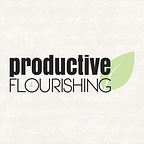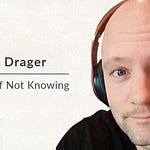Jonathan Fields joins me for a second time today to discuss his new book, How to Live a Good Life. The journey of writing this book has been a particularly interesting one, for the process required him to step into a very uncomfortable role at the same time as it required him to immerse himself in literature that he had dismissed. We discuss this evolution as well as the places lot of people struggle with living a good life. Ready? Let’s do this!
Key Takeaways:
[0:54] Charlie introduces Jonathan and his media venture project, the “Good Life Project”.
[3:45] The shift from writing about entrepreneurship and the creative process to a style more akin to personal development literature.
[6:40] The journey of writing was transformative in itself, both for the content and nature of the book as well as for the author.
[8:05] Wisdom and the capacity for reflexion really does seem to increase with each passing year.
[9:00] Jonathan admits to always having had a negative bias in terms of personal development literature.
[11:04] “How to Live a Good life” both embraces and diverges from the more theologically inclined books in the field.
[14:15] Jonathan explains that this may be his most personal book yet, the one that conveys his voice in the most intimate way.
[20:05] As are attorneys and philosophers, host and author are trained to use language to beguile and obscure things, a training that must be deconstructed to connect more authentically with the audience.
[21:05] At one point in your career it becomes more important to actually change people’s lives rather than change the world.
[24:41] Jonathan touches on how this book was many many years in the making and that the what he initially sold to his publisher was not “How to Live a Good Life”.
[27:20] Despite his initial reluctance for the genre, Jonathan had to read massive amounts of self help literature, to better position his own book and serve his audience.
[30:57] The difference between explanatory and exploratory styles of writing as well as the creative constraints required by certain genres are explored.
[34:00] Although genre structures and writing guidelines are generally followed, Jonathan expands on the importance of going his own way for this book.
[40:00] Peanuts!!
[40:29] Of the three buckets: vitality, connection and creativity, which tend to suffer first for creative types?
[44:45] The vitality bucket, as you age, may be the most challenging to replenish as your body’s needs evolve and change.
[49:19] Jonathan hints at some of the ideas he wants to delve into for his coming projects, including the relationship between money and happiness.
[54:50] Ultimately, all a guide can do is point to the different categories of things that have made people happy and encouraging you to try them and see.
[57:34] The challenge is issued to “Give Thirty”: in the next 24 hours, take 30 opportunities you have to give or to help somebody in less than 30 seconds.
Mentioned in This Episode:












